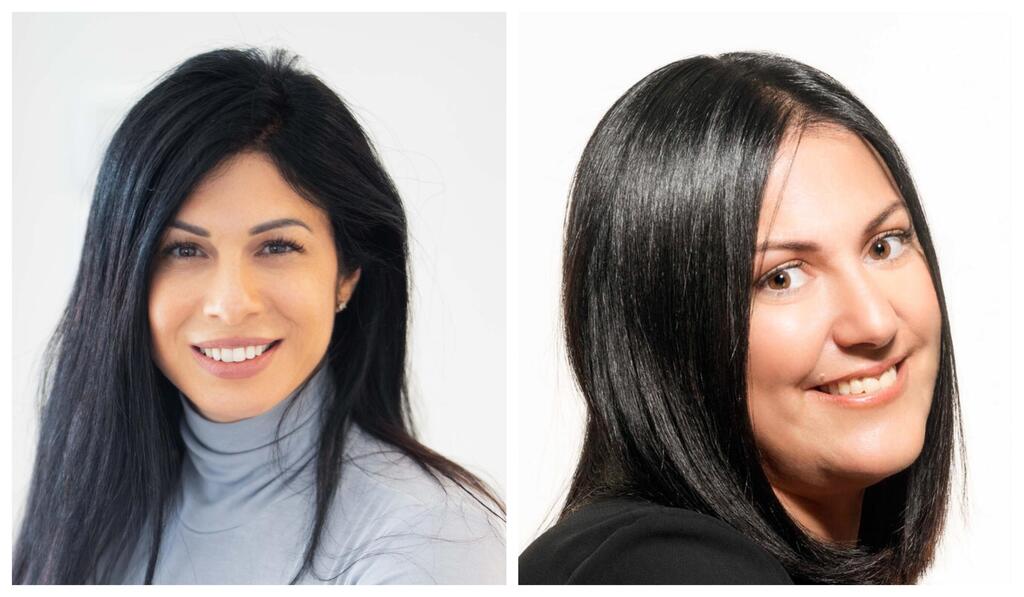
Opinion
Leveraging opportunities for women in high-tech: A beacon of optimism for Startup Nation
"Women's innate strengths in creative thinking, emotional intelligence, and collaborative leadership, are invaluable assets in a landscape increasingly dominated by AI-driven decision-making," write Moran Massad Hadar and Hilla Ovil Brenner
Despite unsettling trends highlighted in Deloitte's global report indicating a decline in women's representation in senior management roles, there are tangible reasons for optimism. This is particularly evident within Israel's high-tech industry. While women are currently underrepresented in this sector, their unique contributions, including emotional intelligence and collaborative leadership, are becoming increasingly vital. The key to shifting this imbalance lies in implementing expanded initiatives. These include improved access to funding specifically for women-led startups, dedicated mentorship programs, and gender-inclusive policies. Deloitte's findings underscore the need for strategic efforts to address these barriers. Alongside the work of organizations like Yazamiyot, there is renewed optimism for a future where women's representation in the Israeli high-tech industry is commensurate with their invaluable contributions.
Recent findings from the Deloitte global report underscore a troubling trend: a worldwide decline in female representation in senior management roles. In Israel, this trend is evident as well, with a significant decrease in the proportion of women serving as CEOs or board members in public companies since 2018.
1 View gallery


Moran Massad Hadar and Hilla Ovil Brenner
(Photo: Inga Avshalom Shilian/Yoram Reshef)
While according to the report the high-tech industry boasts a relatively higher representation of women, at 23.4% in management roles, deeper analysis reveals disparities. The recent comprehensive report on women in high-tech 2024, compiled by the Innovation Authority's Economics and Research Department and the Aaron Institute, unveils a glaring reality: while nearly 40% of women in the industry are engaged in research and development (R&D), they still occupy only one-third of all high-tech jobs.
This disparity extends beyond Israel's borders, as evidenced by the RISE Israel Institute's findings. While the US and Europe see a gradual rise in female entrepreneurship, Israel lags, with only 16% of startups founded by women, compared to 26% in the US and 25% in Europe. Similarly, the percentage of female angel investors remains abysmally low at 5% in Israel, compared to 34% in the US and 14% in England.
These statistics are shocking as research consistently demonstrates that companies with women in senior management roles outperform their counterparts. The Peterson International Research Institute's findings of a 15% increase in profits, when women constitute approximately 30% of management, underscore the economic imperative of gender diversity.
Despite the growing number of initiatives aimed at supporting women in high-tech, females still represent a smaller proportion of this sector, especially the entrepreneurial ecosystem, compared to their male counterparts. Access to funding remains a critical barrier, with women-founded startups receiving a relatively low share of investment.
Although the statistics, significant initiatives surrounding the advancement of women lead to optimism about the future. Additionally, an opportunity for a better future is being forged around the growing need for talent in the new world of AI.
We firmly believe that the AI revolution has unveiled a significant opportunity to instigate change and increase the representation of women in key positions within the Israeli startup nation. In fact, in a world that is moving more and more towards machine learning and decision-making by algorithms and robots, there will be a distinct advantage to the developed emotional intelligence that women bring with them - one that cannot yet be taught to a machine. the unique contributions of women become indispensable. Women's innate strengths in creative thinking, emotional intelligence, and collaborative leadership, are invaluable assets in a landscape increasingly dominated by AI-driven decision-making.
In other words, beyond a proper professional contribution, the advantages of women around the soft skills they bring to high-tech have become more critical than ever.
Expanding the existing initiatives together with emphasizing the opportunity in the new world, may reshape the gender map in Israeli high-tech. For example, education and innovation programs are imperatives to this mission and the rationale behind the vision at Yazamiyot, the leading female founders' group in Israel. In the last few months, Yazamiyot executed four different programs to accelerate female founders with an emphasis on AI (for example InnovateHer in partnership with Mastercard).
To realize this vision, concrete actions are required to enhance funding opportunities. This means specific grants and investment funds exclusively for women-led startups to address the funding gap.
Action must be taken to expand the financing incentives for startups with a diverse representation of women, and encourage VCs to invest in ventures that include female entrepreneurs.
Additionally, Dedicated Mentorship and innovation programs must be set up to connect aspiring female entrepreneurs with successful women business leaders, partners, and investors, and develop comprehensive training programs that cover essential skills such as financial management, business planning, and marketing.
Furthermore, Gender-Inclusive Policies are required: Advocate for policies that promote gender equality in entrepreneurship, including increase of government support initiatives for women-led startups.
In conclusion, although the Deloitte report shows declining statistics of women in key positions with the right ambiance and support, and in light of the AI trend, this picture can be changed drastically. By addressing key barriers and promoting practical changes, along with the support of organizations like Yazamiyot, the entrepreneurial landscape for women in Israel is steadily improving and creating more opportunities for female entrepreneurs to thrive.
The authors are Moran Massad Hadar, Hi-Tech Partner at Deloitte, and Hilla Ovil Brenner, Partner at Arieli Capital and CEO of Yazamiyot.













